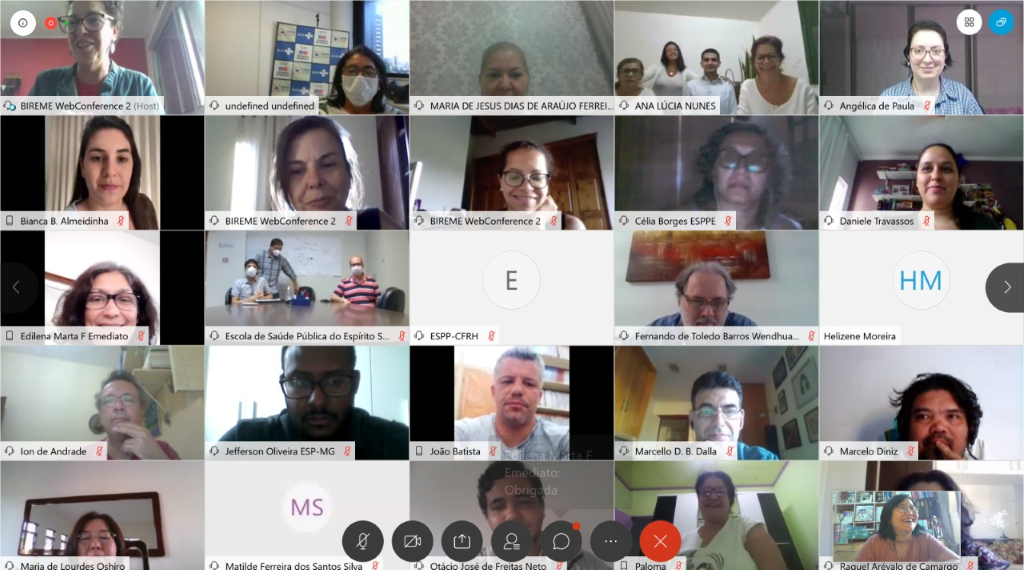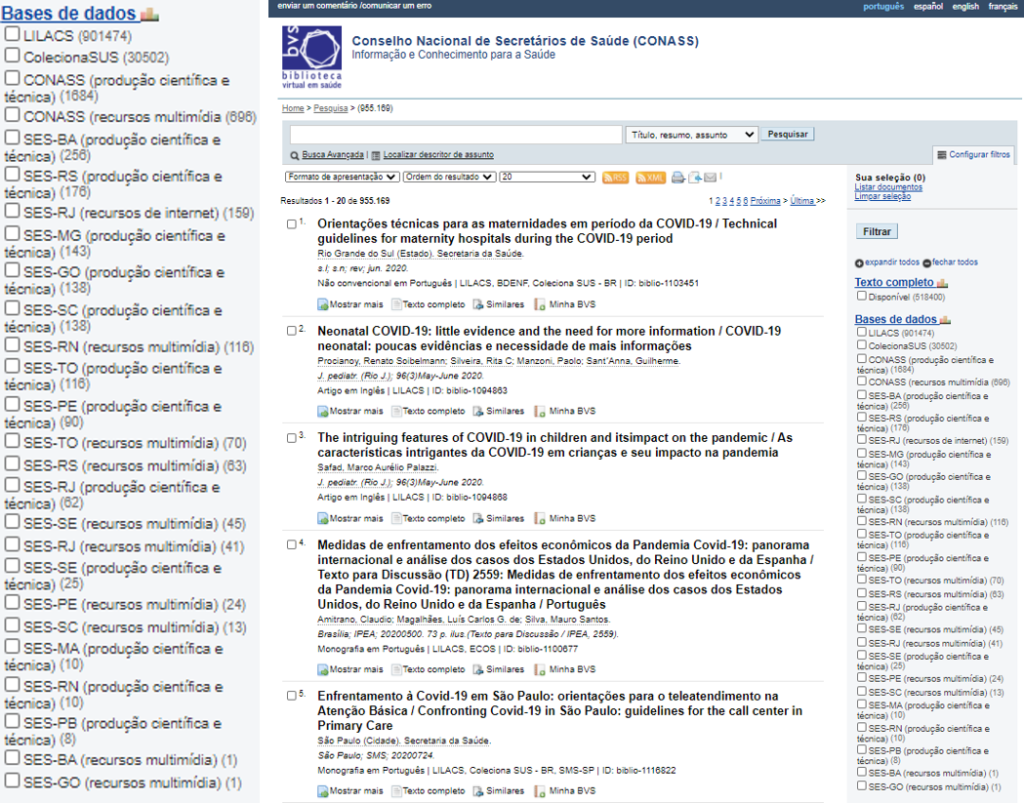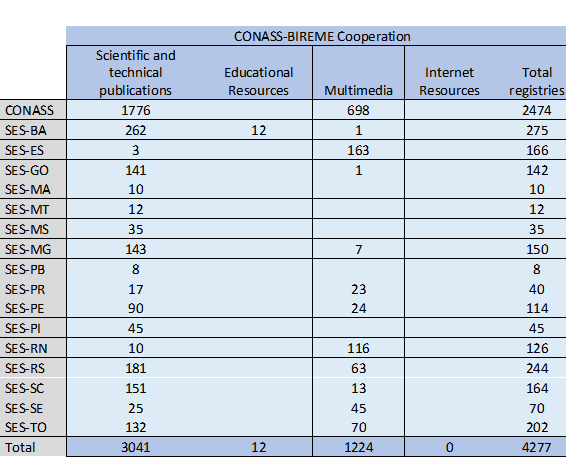The extension of the technical cooperation established between BIREME and the National Council of Health Secretaries (CONASS) for an additional six months sought to implement information and knowledge management actions in the public health area in 15 State Health Secretariats.
The results of this cooperation are aligned with the Virtual Health Library (VHL) Model and contribute to increase the visibility of the scientific and technical production in health of the Secretariats and their research and teaching units, such as the National Schools of Health. Among the results achieved, three stand out:
- Integration of the 15 Health Schools, which joined the project, in the VHL Brazil Network as cooperating centers of the LILACS and ColecionaSUS database. For training and follow-up of the working groups, dozens of weekly meetings were held that made it possible to achieve the results within the short term of 6 months of the project.

The follow-up meetings had great support and highlighted the need for structuring and mobilizing the secretariats in order to establish the flows of information and knowledge management.
Information and knowledge management and scientific evidence-based decisions are cultural processes that must be formalized, internalized and continuously stimulated and monitored for their adoption in the daily lives of public health professionals and managers. In this sense, this topic was presented at a meeting of the CONASS Technical Chamber.

- Indexing of the scientific and technical output of the State Health Secretariats and their research and teaching units in the collection of information sources of the VHL following the LILACS Methodology and using BIREME’s information source management system (FI-Admin). Fifteen new databases of the Secretariats were created, which should continue to be regularly updated by the focal points of the project in each Secretariat.

The new databases were integrated into the CONASS database, expanding its collection of the Digital Library. The table shows the distribution of record types by Secretariat, which totals 4,277 documents in the collection of the CONASS Digital Library.
Table 1. Distribution of the contribution of the SES in the databases that are integrated in the CONASS Digital Library (on December 2, 2020)
- The third result is the insertion of a link to the project’s products on the websites of the Health Schools. For example, a link to the Secretariat’s database, the insertion of the RSS resource to present the latest database records or the insertion of the VHL search box.
The options are and BIREME prepared a technical note to guide the technical teams of the Secretariats/Schools responsible for the websites. The conditions and options are given, but it requires an internal communication action in the secretariats to “open the paths”.

A stating movement
Last December 11th, the closing meeting of this project extension phase was held with the presence of all focal points of the 15 Health Schools, in addition to the representatives of CONASS, Haroldo Pontes and Marcus Vinícius, of the director of BIREME, Diego Gonzalez, and BIREME collaborators who accompanied the project, Sueli Suga (librarian, Information Sources Supervisor), Laís Silva (librarian, Information Sources) and Veronica Abdala (Manager of Information Sources).
The group’s enthusiasm for the results achieved and the spirit of collaboration and networking present in all follow-up meetings and in the messages and feedbacks exchanged by the WhatsApp group created for the project. In fact, according to Veronica Abdala, the group remained motivated and responded proactively to the activities that were proposed for mapping, indexing and visibility of the scientific and technical production of the Secretariats and their teaching and research units in the VHL.
Some messages shared through WhatsApp express the group’s enthusiasm (translated from the original in Portuguese):
“Congratulations on the results of the project. We are very happy with the movement that begins in the Schools.” Haroldo, CONASS.
“The ESP/SC team thanks you for the warmth and cordiality that you have always given us, the professionalism with which you conducted the work and we are especially grateful for the welcome and contagious jo … They made us feel really part of this cooperative family.”
“Participating in this project was a process of great learning for us at ET-SUS – SES-TO. Indexing, I estimate to be the most important library-economic procedure in the retrieval of information, since a non-indexed document is a lost document. And the process continues. I would like to congratulate everyone and say that it is an unparalleled honor to work on this project with you from BIREME and colleagues from the Secretariats involved. It is great to be part of this team.”
“Another project successfully built, as a result of Haroldo’s work in the search to strengthen the Schools of Public Health (ESP). Gratitude to PAHO and BIREME that joined CONASS for the execution of this project. Congratulations to the ESP-RS team for participating with responsibility and commitment, demonstrated by this result.” Terezinha, Director of EESP/RS.
“Thank you to everyone at BIREME for the dedication and support in this project, in addition to the guidelines. And that in the next year we can continue this work and progress more and more corroborating for the dissemination and sharing of information.” Marcelo, SES Tocantins.